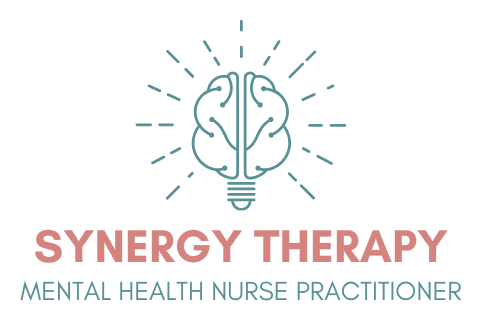
What Does a Psychiatric Nurse Practitioner Do? Key Responsibilities

Posted on August 19th, 2024.
A psychiatric nurse practitioner is a healthcare provider who truly understands that mental well-being is deeply intertwined with physical health and daily habits. This is not just about treating symptoms but enhancing your overall quality of life through a balanced and integrative method.
Lifestyle adjustments, diet changes, and mindfulness practices are key components of this holistic method. Mindfulness techniques, vagal stimulation, and beyond, are other powerful techniques that these professionals use to profoundly impact your mental health.
Have you ever thought about how your food choices could impact your emotional state? It’s quite enlightening to consider the effect of nutrition on mental clarity and stability.
So, what exactly does a psychiatric nurse practitioner do? Let's see.
The Role of a Psychiatric Nurse Practitioner
 Psychiatric nurse practitioners are highly trained healthcare professionals specializing in mental health care. They are equipped with both the medical and therapeutic skills necessary to provide comprehensive support for individuals experiencing psychological issues such as depression, anxiety, and other mental health conditions.
Psychiatric nurse practitioners are highly trained healthcare professionals specializing in mental health care. They are equipped with both the medical and therapeutic skills necessary to provide comprehensive support for individuals experiencing psychological issues such as depression, anxiety, and other mental health conditions.
These nurse practitioners have completed advanced education beyond their initial nursing degree, typically earning a Master of Science in Nursing (MSN) or a Doctor of Nursing Practice (DNP) with a focus on psychiatric mental health. This rigorous training includes extensive coursework in psychiatric principles, pharmacology, and therapeutic modalities, as well as clinical placements in various mental health settings under the supervision of experienced psychiatric professionals.
Following their educational preparation, psychiatric nurse practitioners must pass a national certification exam to become board-certified by a recognized body such as the American Nurses Credentialing Center (ANCC). They are required to maintain their certification through ongoing education and professional development.
Additionally, these nurse practitioners often bring years of clinical practice in diverse settings like hospitals, outpatient clinics, and community health centers, which enriches their expertise and enhances their ability to tailor mental health care to each individual’s unique needs.
The scope of practice for psychiatric nurse practitioners is broad, allowing them to perform many of the same functions as a psychiatrist. This includes:
- conducting thorough psychiatric evaluations,
- diagnosing mental health disorders,
- developing personalized treatment plans
- prescribing medications and providing medication management
- offering counseling and therapy services that focus on integrative approaches
Key Responsibilities in Patient-Centered Mental Health Care
Psychiatric nurse practitioners have a multi-dimensional role that is deeply patient-centric. Their primary responsibility is to provide individualized mental health care that aligns with each patient's specific needs and life circumstances.
Conducting In-Depth Assessments and Diagnosing
When a new patient comes in, the first step usually involves a thorough evaluation, where the nurse practitioner delves into the patient’s medical history, current symptoms, lifestyle, and perhaps even social interactions. This in-depth assessment helps in formulating accurate diagnoses, whether it’s a common condition like anxiety and depression or something more complex.
Crafting a Personalized Treatment Plan
After a thorough evaluation, the next phase in patient-centered care involves crafting a personalized treatment plan. Unlike a cookie-cutter approach, this plan is tailored to your unique needs and preferences. It may include a combination of medication management, talk therapies, and integrative strategies such as nutrition counseling or mindfulness techniques. Medication management is not just about prescribing drugs; it’s about careful selection, dosage adjustments, and regular monitoring to gauge effectiveness and side effects.
Supporting You During Major Life Changes
Imagine you are going through a significant life transition, such as menopause, career changes, or even the stress associated with caregiving responsibilities. A psychiatric nurse practitioner can offer the steady support needed to manage these shifts effectively. They consider all aspects of your life, from emotional well-being to physical health, ensuring they address every aspect of your mental well-being.
Providing Ongoing Care
Ongoing care is not just about addressing crises; it’s about maintaining mental wellness long-term. Regular appointments allow your psychiatric nurse practitioner to monitor progress, adjust treatments, and provide a space for you to express concerns. This continuity of care fosters a strong therapeutic relationship built on trust and mutual respect. With consistent support, regular follow-ups, and an integrative approach, you can deal with life's ups and downs with greater ease, feeling empowered in your journey towards mental wellness.
Holistic Care Approaches for Mental Well-Being
Imagine having a healthcare provider who understands that your mental well-being is deeply interconnected with your physical health and daily habits. This is the essence of holistic care approaches.
At Synergy Therapy, psychiatric nurse practitioners don't just focus on symptom relief; they aim to enhance your overall quality of life through a balanced and integrative method. For example:
- Lifestyle coaching is utilized to promote healthier daily routines that can significantly impact your mood and energy levels.
- Strategies such as diet adjustments are not just suggestions but are backed by scientific knowledge on how nutrition affects the brain.
- Mindfulness techniques are employed to help you stay grounded, especially during stressful times. These practices encourage you to be present in the moment and can include simple exercises like controlled breathing or guided imagery.
- The nurse practitioner may also integrate emotional freedom techniques, which combine cognitive therapy with acupressure, to help you manage emotional distress.
- Vagal stimulation, another complementary therapy, targets the vagus nerve and can have profound effects on reducing anxiety and enhancing mood.
Wrapping Up
Your journey towards mental health and wellness is thoughtfully supported by a range of holistic services that address every aspect of well-being. From traditional medication management to innovative techniques like plant-based medicine and nutritional coaching, psychiatric nurse practitioners design a treatment plan that considers both your physical and emotional needs.
At Synergy Therapy, we believe in an integrative approach to wellness. By recognizing the importance of balancing different aspects of your life, we craft personalized holistic plans that evolve with each person.
Are you ready to take the next step in your mental health journey? Schedule a Free Phone Consultation Today
If you want to have a personalized discussion to identify your specific needs and set a path forward, feel free to reach out via email at [email protected] for more information.
Send a Message
Please fill out the form below to schedule your complimentary consultation or to inquire about my services. I am here to support you on your journey towards holistic wellness.
Contact
Other website
www.psychologytoday.com/profile/1280424